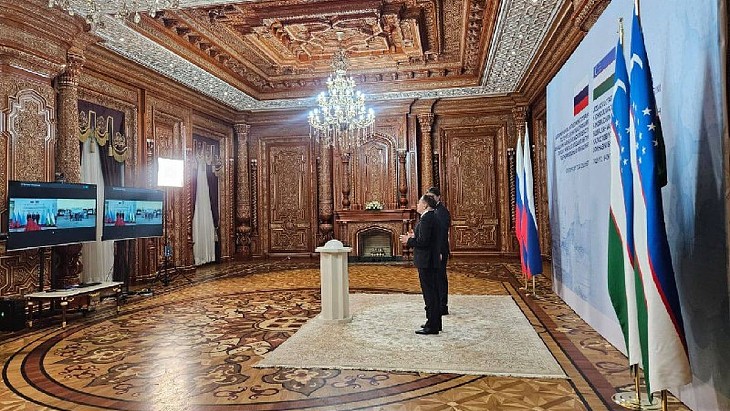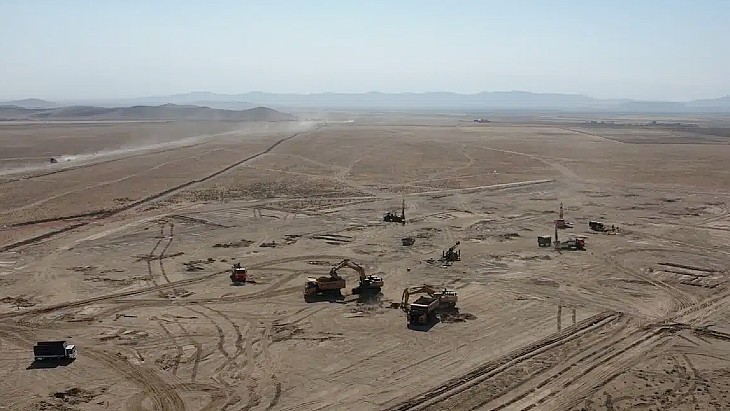The first cubic metres of soil were excavated in a ceremony attended by Pavel Bezrukov, vice president and director of the construction project at Atomstroyexport JSC, Abdujamil Kalmuratov, Head of the Directorate for the Construction of a Nuclear Power Plant State Enterprise, and Ulugbek Mustafoyev, Governor of the Jizzakh region.
Alexei Likhachev, director general of Rosatom, said during the event: "Today marks the beginning of a new phase in the implementation of the nuclear power generation project in Uzbekistan. As with all our international projects, the construction is designed with a high degree of localisation. The work is being carried out by Uzbek subcontractors. Rosatom will build the plant, which will have a service life of at least 60 years, and will provide all necessary support during its operation. We look forward to many decades of fruitful and mutually beneficial cooperation."

Rosatom's director general took part in the event via video-link (Image: Rosatom)
Uzbekistan's Uzatom said that 27 test and research boreholes have been drilled, with engineering surveys and design and preparatory works under way and a plan for design documentaton to be submitted for review by the end of the year, with first concrete for the first SMR unit expected to be poured in March 2026.
Rosatom began manufacturing reactor equipment in May, with a 205-tonne ingot of special alloy steel cast which will form the reactor vessel.
And an agreement was signed at the end of September during World Atomic Week in Moscow which multiplied the capacity of the proposed project to include two large units - VVER-1000s - in addition to two 55 MW RITM-200N SMRs. Originally the plan had been for up to six SMRs.
The RITM-200N is a water-cooled reactor adapted from nuclear-powered icebreakers' technology, with power of 190 MWt or 55 MWe and with an intended service life of 60 years. The first unit is scheduled to go critical in late 2029.
It is the first export order for Russia's SMR. The first land-based version is currently being built in Yakut, Russia, with the launch of the first unit scheduled for 2027. Rosatom says that its combination of active and passive safety systems means the SMR plants will achieve the highest possible safety standards.
Meanwhile, according to Russia's Tass news agency, negotiations are under way targeting a spring 2026 scheduled signing of a contract for the GW-scale units, with one of the issues being agreement that there would be at least 70% localisation of workers on the project.








_94566.jpeg)






